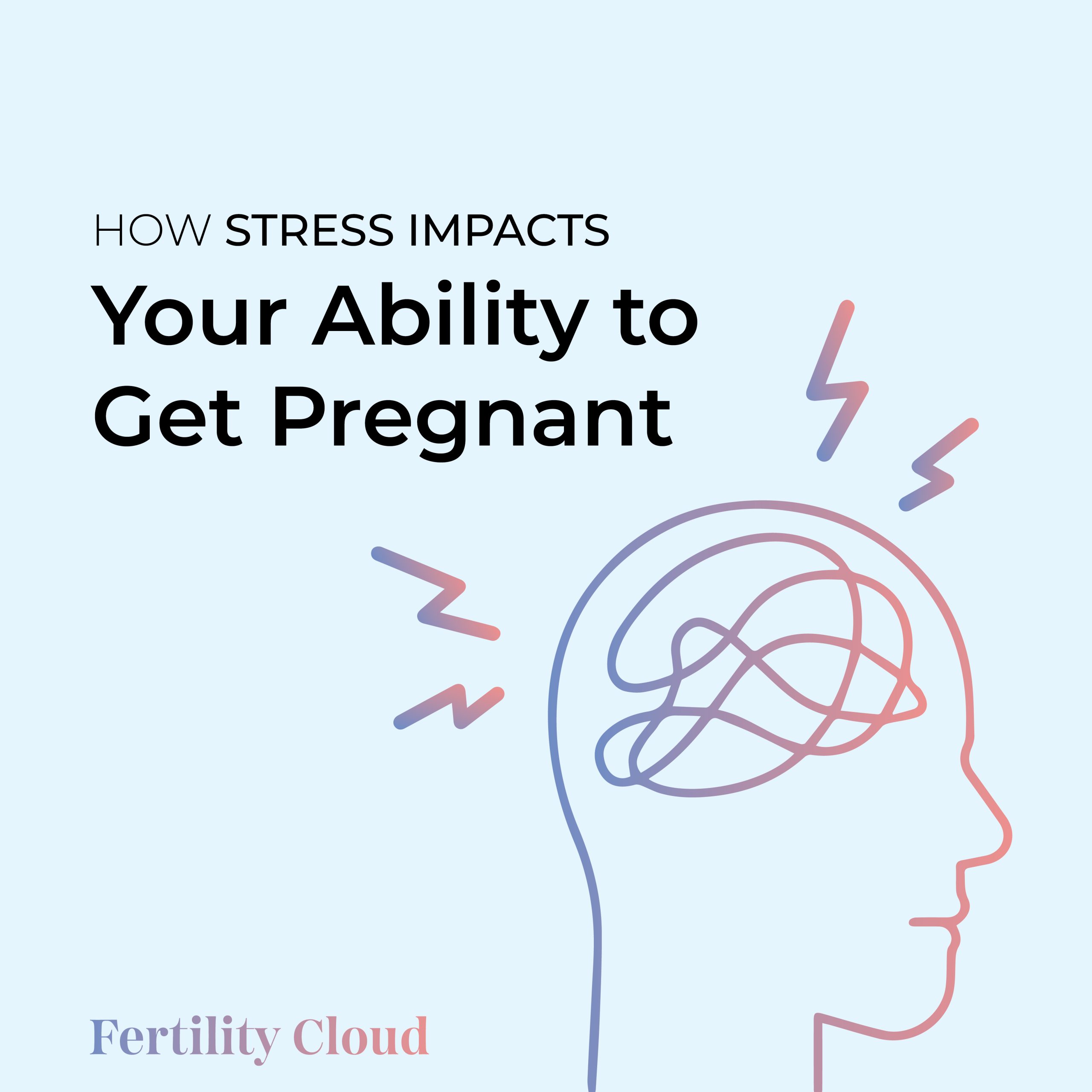How can I improve my chance to get pregnant naturally
Trying to conceive can be an exciting and emotional journey for couples. For those who are hoping to get pregnant naturally, understanding your menstrual cycle is a crucial first step. By familiarizing yourself with the different phases of your cycle, you can maximize your chances of conceiving.

Understanding Your Menstrual Cycle
Every woman’s menstrual cycle is unique, but on average, it lasts about 28 days. The menstrual cycle consists of four main phases: menstruation, the follicular phase, ovulation, and the luteal phase. During menstruation, the lining of the uterus sheds, resulting in bleeding that usually lasts for several days. Following menstruation, the follicular phase begins, during which an egg in the ovary starts to mature.
Mid-cycle, ovulation occurs when the egg is released from the ovary. This is the most fertile time of the menstrual cycle, as the egg can be fertilized by sperm within 12-24 hours of being released. Finally, during the luteal phase, the uterine lining thickens in preparation for potential implantation of a fertilized egg. If implantation does not occur, the cycle starts anew with menstruation.
It’s important to note that various factors can influence the length and regularity of a woman’s menstrual cycle. Stress, diet, exercise, and underlying health conditions can all play a role in affecting the timing of ovulation and the overall duration of the cycle. Keeping track of your menstrual cycle through methods such as charting basal body temperature or using ovulation predictor kits can help you better understand your unique patterns and increase your chances of conception if you are trying to get pregnant.
Additionally, hormonal birth control methods, such as the pill or intrauterine devices, work by manipulating hormone levels to prevent ovulation and alter the uterine lining, thereby affecting the menstrual cycle. These methods can be helpful for women looking to regulate their cycles, manage symptoms like heavy bleeding or cramping, or prevent pregnancy. It’s essential to consult with a healthcare provider to determine the most suitable birth control option based on individual health needs and preferences.
The Role of Nutrition in Fertility
Eating a well-balanced diet is not only crucial for maintaining overall health but also plays a significant role in fertility. When it comes to conception, the importance of nutrition cannot be overstated. A diet that is rich in essential nutrients can have a positive impact on reproductive health and increase the likelihood of successful conception.
One key aspect of nutrition in fertility is maintaining a healthy weight. Both being underweight and overweight can have adverse effects on fertility. For example, excess body fat can disrupt hormone levels and menstrual cycles, while being underweight can lead to irregular ovulation. Therefore, achieving and maintaining a healthy weight through a balanced diet and regular exercise is essential for optimizing fertility.
Foods rich in antioxidants, such as colorful fruits and vegetables, are particularly beneficial for reproductive health. Antioxidants help protect the eggs and sperm from oxidative stress caused by free radicals, thus preserving their quality and viability. In addition, omega-3 fatty acids, abundant in fatty fish like salmon and sardines, play a crucial role in hormone regulation and can improve egg quality. Furthermore, folic acid, a B vitamin found in leafy greens and fortified grains, is essential for preventing neural tube defects in the developing fetus. By incorporating a diverse range of nutrient-dense foods into your diet, you can support your reproductive system and enhance your chances of conceiving naturally.
Lifestyle Changes to Boost Reproductive Health
Aside from nutrition, certain lifestyle factors can also impact fertility. Making positive changes in these areas can help improve your chances of conceiving naturally. Smoking, for example, has been shown to decrease fertility in both men and women. Quitting smoking is not only important for overall health but can also greatly improve reproductive outcomes.
Reducing alcohol consumption is also advisable, as excessive alcohol can disrupt hormone levels and interfere with ovulation. It’s also important to limit caffeine intake, as high levels of caffeine have been associated with decreased fertility. Finally, avoiding exposure to environmental toxins, such as certain chemicals or radiation, can help safeguard your reproductive health.
Engaging in regular physical activity is another key lifestyle factor that can positively impact reproductive health. Exercise helps maintain a healthy weight, which is important for fertility. However, it’s essential to strike a balance, as excessive exercise can actually have a negative effect on fertility by disrupting hormone levels. Aim for moderate and consistent physical activity to support your reproductive goals.
Additionally, managing stress levels is crucial for optimizing fertility. High levels of stress can interfere with hormone production and menstrual cycles, affecting ovulation and overall reproductive health. Incorporating stress-reducing practices such as mindfulness, yoga, or meditation into your daily routine can help support a healthy reproductive system. Prioritizing self-care and relaxation can make a significant difference in your fertility journey.
The Importance of Regular Exercise
Incorporating regular exercise into your routine can have a positive impact on fertility. Exercise can help regulate hormone levels, improve blood flow to reproductive organs, and reduce stress, all of which can increase your chances of getting pregnant naturally. However, it’s important to strike a balance, as excessive exercise or intense training can negatively impact fertility. Aim for moderate exercise, such as brisk walking, swimming, or yoga, for optimal reproductive health.
Moreover, engaging in regular physical activity not only benefits your reproductive system but also plays a crucial role in maintaining overall health and well-being. Exercise is known to boost cardiovascular health, strengthen muscles and bones, and improve mental health by releasing endorphins, the “feel-good” hormones. By incorporating a variety of exercises into your routine, you can enhance your physical fitness levels and reduce the risk of chronic diseases such as heart disease, diabetes, and obesity.
When it comes to fertility, the positive effects of exercise extend beyond just physical health. Regular exercise can also help improve your sleep quality, enhance your mood, and boost your self-esteem, all of which are important factors in promoting a healthy reproductive system. Additionally, participating in group exercise classes or outdoor activities can provide social benefits by connecting you with like-minded individuals, creating a support system that can further contribute to your overall well-being and fertility journey.
Stress Management Techniques for Couples
Stress can be a significant factor that impacts fertility. High levels of stress can disrupt hormone levels and interfere with ovulation and implantation. While trying to conceive, it’s crucial to implement effective stress management techniques to promote overall well-being and maximize your chances of conceiving naturally.
Explore different stress reduction techniques, such as meditation, deep breathing exercises, or engaging in activities you enjoy. Couples may also find it helpful to communicate openly about their feelings and concerns, seek support from friends and family, or even consider professional counseling to cope with the emotional toll of fertility challenges.
Moreover, incorporating regular physical activity into your routine can also be beneficial in managing stress levels. Exercise not only helps release endorphins, the body’s natural stress relievers, but it also improves blood circulation, which can positively impact reproductive health. Whether it’s going for a brisk walk together, practicing yoga, or hitting the gym, finding an exercise regimen that suits both partners can strengthen the bond between you and provide a healthy outlet for stress.
Additionally, maintaining a balanced and nutritious diet plays a crucial role in stress management and fertility. Consuming foods rich in antioxidants, vitamins, and minerals can help combat the negative effects of stress on the body and support reproductive function. Consider incorporating more leafy greens, fruits, lean proteins, and whole grains into your meals to nourish your bodies and enhance your fertility journey. Remember, a holistic approach to stress management, encompassing physical, emotional, and nutritional aspects, can significantly improve your overall well-being and fertility outcomes.
Natural Supplements That May Enhance Fertility
In addition to a healthy diet and lifestyle, certain natural supplements may have potential benefits for fertility. However, it’s important to consult with a healthcare professional before starting any new supplements to ensure they are safe and appropriate for you.
Some supplements that may enhance fertility include folic acid, vitamin D, omega-3 fatty acids, and Coenzyme Q10. These supplements can support reproductive health and overall fertility, but they are not a substitute for a healthy lifestyle and medical advice.
Folic acid, also known as folate, is a B vitamin that is crucial for cell division and growth. It plays a vital role in preventing neural tube defects in developing fetuses. Vitamin D, often referred to as the “sunshine vitamin,” is essential for hormone regulation and may help improve fertility by supporting reproductive hormone levels. Omega-3 fatty acids, found in fish oil and flaxseed, have anti-inflammatory properties that can help reduce inflammation in the body, potentially benefiting fertility.
Coenzyme Q10, a powerful antioxidant produced by the body, plays a key role in energy production within cells. It has been suggested that Coenzyme Q10 supplementation may improve egg quality in women and sperm quality in men, thus enhancing fertility. While these natural supplements show promise in supporting fertility, individual results may vary, and it’s crucial to seek guidance from a healthcare provider to determine the most suitable options for your specific needs.
Timing Intercourse for Optimal Chances
Understanding the timing of intercourse is crucial when trying to get pregnant naturally. As mentioned earlier, ovulation is the most fertile time of the menstrual cycle. To increase your chances of conceiving, having intercourse every 1-2 days during your fertile window is recommended.
There are several methods to determine when you are ovulating, such as tracking your basal body temperature, monitoring changes in cervical mucus, or using ovulation predictor kits. These methods can help you identify your fertile days and time intercourse accordingly, increasing the likelihood of successful conception.
Common Myths About Natural Conception
When it comes to conception, there are numerous myths and misconceptions that can lead to unnecessary stress or disappointment. It’s essential to separate fact from fiction to better understand your fertility journey.
One common myth is that a woman can only get pregnant on her ovulation day. In reality, sperm can survive for several days inside the female reproductive system, so having intercourse in the days leading up to ovulation can still result in pregnancy. Additionally, age can also impact fertility, with a gradual decline in fertility occurring as a woman gets older.
By staying informed and aware of these myths, you can navigate your fertility journey with realistic expectations and take appropriate steps to improve your chances of getting pregnant naturally.
Improving your chances of getting pregnant naturally involves a multifaceted approach that includes understanding your menstrual cycle, making healthy lifestyle choices, managing stress, and utilizing various tools, such as supplements or fertility awareness methods. By taking these steps, you can optimize your reproductive health and increase your chances of conceiving a baby naturally.











